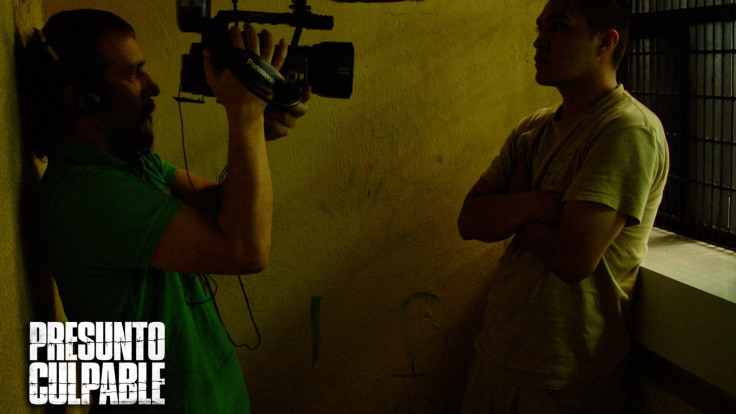
Antonio Zúñiga, who defended himself against a 20-year murder conviction in a Mexico City court to win his own freedom and become the hero of "Presumed Guilty" ("Presunto Culpable") upon the documentary's release in 2011, has been a free man for almost five years now. But the legal troubles of the director and producer for the film that brought him fame in Mexico are still mounting. Producer Layda Negrete and director Roberto Hernández are facing 19 lawsuits stemming from the film, which cannot be seen in theaters, distributed on DVD or transmitted on television after a federal judge ordered it pulled from 200 theaters in March 2012.
That judicial decision came in response to a complaint from Víctor Daniel Reyes, who appears in the film as a 17-year-old witness to the shooting death of his cousin, José Carlos Reyes Pacheco. Reyes had initially accused Zúñiga of being the murderer, and throughout the film appears to have been largely manipulated by the officers who hauled in Zúñiga. Reyes was also unaware of a test proving Zúñiga had never fired a gun on the afternoon of the murder. He alleges that he never gave the filmmakers permission to utilize his image in the documentary. The other relatives of the slain man who have brought suits against the filmmakers argue that the film revives the pain they felt.
RELATED: Political Violence Mars Mexican Local Elections
"I understand that," Negrete told Vanguardia, "and faced with that pain we have a chance to put this out there as an example of a national problem which pains many other families. The lawyers...are utilizing the strategy of overwhelming, where the arguments aren't the strongest thing in the end but rather the quantity of them, which put us in a difficult situation."
RELATED: Candigato Morris, Parody Mayoral Candidate, Claws His Way To Thousands Of Votes In Xalapa
Hernández told Animal Político that the existence of the 19 suits demonstrates that judiciaries and police "don't have very clear rules" on the right to freedom of expression and what can or cannot be filmed. And in response, he and Negrete are seeking to do what they did for Antonio Zúñiga's trial: film the proceedings. "We feel that more than being arbiters of a case, the judges feel like victims," he said, adding that on various occasions, the judges had yelled at them and demonstrated their bias against the film.
RELATED: Immigration Reform 'Border Surge' Seen As Affront By Many In Mexico
"There have been some rather unfortunate comments that weren't recorded in the hearings' affidavits. If this were to occur in a trial caught on video or in public, everyone would know about the judge's comments. However, the judges are the ones who have power over the hearings and if they don't want it to, it doesn't get recorded."
© 2025 Latin Times. All rights reserved. Do not reproduce without permission.




